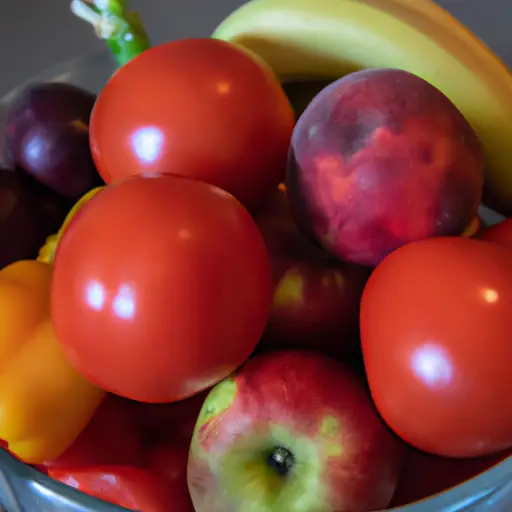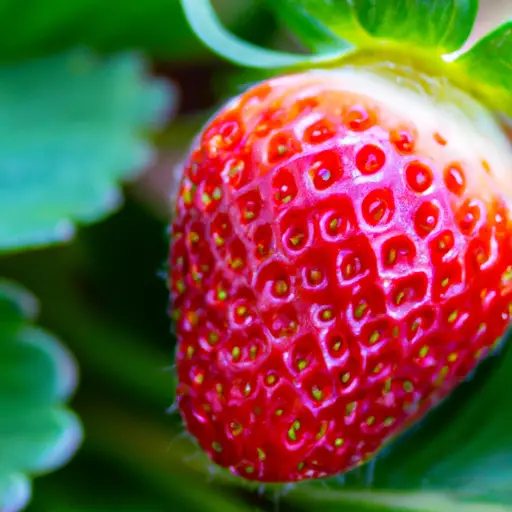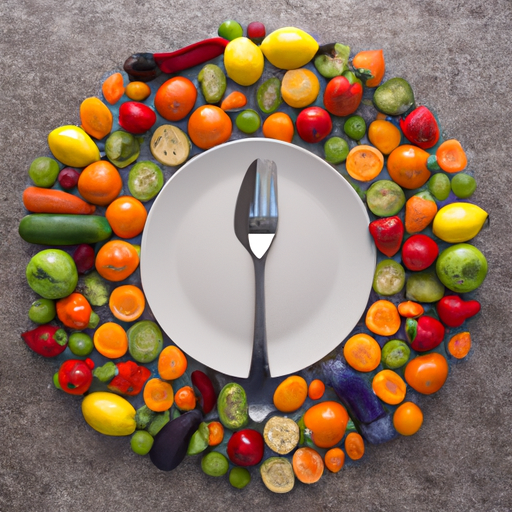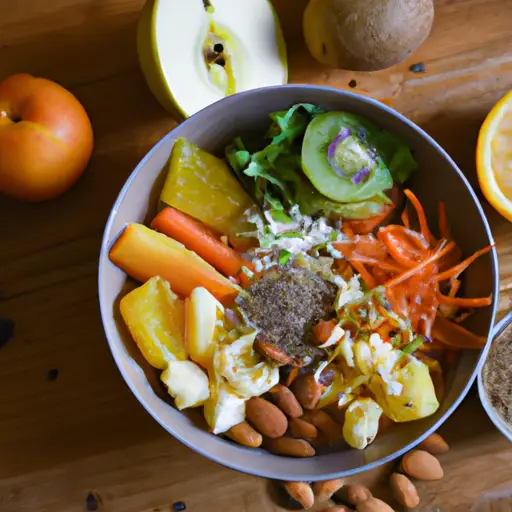Dangers of a Gluten-Free Diet
Introduction
So, you’re considering going gluten-free? Well, let me tell ya, it ain’t for the faint of heart. Giving up gluten is a big commitment that requires knowledge and an understanding of what the diet entails. I’m here to break it down for you so you can make an informed decision about whether this restrictive diet is right for you.
First things first, what even is a gluten-free diet? Basically, it’s a diet that eliminates all foods containing or made with gluten, which is a protein found in wheat, barley, and rye. So why go gluten-free? People might follow a gluten-free diet if they have celiac disease, gluten sensitivity, allergies, or other health conditions. It’s also become increasingly popular among those looking to lose weight or improve their overall health.
Potential Health Risks of Going Gluten-Free
When it comes to gluten-free diets, I’m here to tell ya: there’s no one-size-fits-all solution. Sure, going gluten-free can be beneficial for some people with certain health conditions, but there are also potential risks associated with cutting out gluten — especially if you go about it without proper guidance or preparation.
Let’s dive into a few of the potential health risks that come with going gluten-free. First up: nutritional deficiencies. People who go gluten-free tend to cut out grains like wheat, barley, and rye from their diet. This means they may miss out on valuable B vitamins, iron, and fiber — all of which are found in whole grains.
Furthermore, research has shown a link between avoiding gluten and an increased risk of type 2 diabetes. If you’re someone who is predisposed to diabetes, the lack of whole grains in your diet could put you at higher risk of developing the disease.

Digestive issues can sometimes accompany a gluten-free diet as well. Since our bodies depend on dietary fiber to help keep us regular, opting out of whole grains can lead to constipation and other digestive discomfort.
Also, if you’re not careful, a gluten-free diet can result in dangerously low levels of fiber intake. So if you decide to go gluten-free, make sure you get creative and add high-fiber alternatives like quinoa, beans, chia seeds, and dark, leafy greens wherever possible.
Potential Risks of Eating Gluten-Free Foods
When it comes to going gluten-free, not all foods are created equal. Despite their name, many gluten-free products on the market aren’t truly free from wheat and other gluten-containing ingredients. A lot of these products are still made with wheat or barley flour or other forms of gluten. So, if you’re avoiding gluten for health reasons, it’s important to read ingredient labels carefully!
Hidden sources of gluten are perhaps the biggest risk when it comes to gluten-free foods: There can be hidden sources of gluten in breaded foods, such as frozen fried chicken or fish sticks, as well as in some processed meats, like hot dogs or lunch meat. Other potential sources of gluten include seitan, soups, beer, braised meat, sauces and gravies, modified food starch, and brown rice syrup. It’s also important to watch out for cross-contamination in shared cooking and baking environments.
It’s also important to be aware of what type of so-called “gluten-free” ingredients might be lurking in your foods. While some gluten-free products come packed with healthy ingredients like nuts, seeds, and those high in fiber, others contain unhealthy ones like sugar, salt, and saturated fat. You may also find that gluten-free alternatives to traditional favorites, like French fries or chips, are often higher in calories than their gluten-containing counterparts.
Summary
Going gluten-free can present many health risks, and unfortunately it’s easy to fall into the trap of buying unhealthy gluten-free products. Nutritional deficiencies, increased risk of diabetes, digestive issues and low fiber intake are just a few of the hazards that come with cutting out gluten entirely. As if that weren’t enough, there are also hidden sources of gluten in unexpected places, so make sure you check the ingredients list on any food that claims to be gluten-free! All in all, eating a gluten-free diet can be complicated, so it’s important to exercise caution and get expert advice before making any sweeping changes to your diet.
Conclusion
All in all, going gluten-free isn’t the easiest gig. Sure, it might take some getting used to, and there are definitely some things you need to look out for. But there are also plenty of benefits to be had if you can stick with it: improved digestion, enhanced energy levels, and greater overall health.
At the end of the day, the decision to go gluten-free is entirely up to you. Do your own research, talk to your doctor and nutritionist, and make the choice that’s best for your body and lifestyle. And hey, if you decide to dive in – don’t forget to read those labels carefully!
Risks of Gluten-free Diet
What are the disadvantages of being gluten-free?
As someone who has been gluten-free for quite some time, I’ve come to realize there can be some real disadvantages that come along with it. Though there is no one-size-fits-all answer, I can tell you some of the risks of living gluten-free.
For starters, the biggest danger of a gluten-free diet is hidden gluten. Everywhere you look, you have to be on the lookout for potential contaminants. From crumbs on a cutting board, to a fryer that’s been shared with items containing gluten, it can be a challenge to stay on top of all the potential risks.
Another risk is of taking a deficient diet. Gluten-free products often lack certain vitamins and minerals you would get from products made with wheat. This means you may have an unbalanced diet if you aren’t careful.
Also, if you don’t take the time to really read labels and go through all of the ingredients, it can be easy to accidently consume hidden sources of gluten.
Finally, it can be difficult to find substitutes for certain foods that are often made with gluten. For example, there are no gluten-free substitutes for breads and pastries. This can make it difficult for you to enjoy some of your favorite foods.
All in all, it’s important to be aware of the risks associated with a gluten-free diet. While it can be done safely, it’s important to take the time to read labels and make sure you are eating a well-balanced diet to ensure you get all of the nutrients you need.
Who should avoid a gluten-free diet?
As someone with extensive experience studying the effects of gluten on the human body, I have to say that a gluten-free diet isn’t always the best choice. For starters, it deprives you of important vitamins and minerals that you are likely to get from regular breads and cereals. Plus, it also excludes many of the delicious and satisfying foods which you would normally choose from. There are also risks to a gluten-free diet. If you are not vigilant about reading labels and ensuring that foods are truly gluten-free, you may be inadvertently ingesting gluten, which can make you ill. Lastly, since a gluten-free diet is often high in fat and lacking in fiber, you may be at risk for certain diseases and conditions, such as high cholesterol and obesity. So, if you are considering a gluten-free diet, I suggest that you speak to a qualified nutritionist first in order to ensure it is the right choice for you.
What can happen if a gluten-free person eats gluten?
If someone on a gluten-free diet accidentally consumes gluten, the consequences can be serious. The most common reaction is an inflammatory response, usually affecting the gastrointestinal tract. This can lead to cramping, diarrhea, gas, nausea and abdominal pain. In more severe cases, it can cause anemia, joint pain, headaches, fatigue and neurological or psychological symptoms. Long-term consumption of gluten can also weaken the immune system, increase the risk of autoimmune diseases and even cancer.
Moreover, when someone is switching to a gluten-free diet, they may not be aware that certain processed foods, condiments and sauces may contain gluten. This can lead to accidental consumption and all the associated risks. It’s important to read food labels carefully and try to find out which ingredients and additives may contain gluten.
Finally, a gluten-free diet can lead to nutrient deficiencies due to the lack of certain grains. This can particularly affect people who don’t pay attention to the nutritional quality of their food. It’s important to consult a nutritionist or healthcare provider to make sure that you are getting all the nutrients your body needs.






